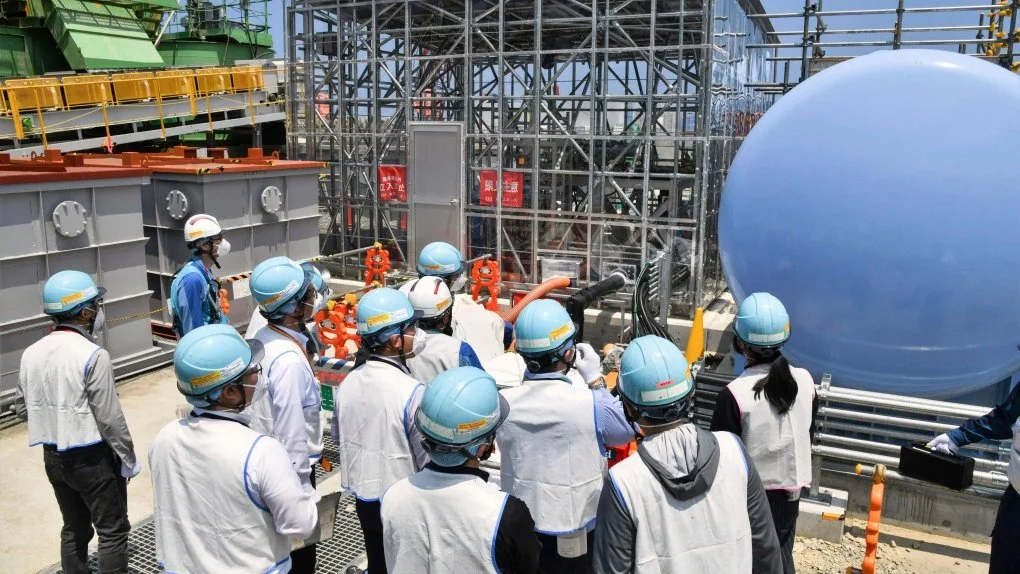Japanese regulators began the final inspection Wednesday before treated radioactive wastewater is released from the wrecked Fukushima nuclear plant into the Pacific Ocean. The inspection began a day after the plant operator Tokyo Electric Power Company Holdings had installed the last piece of equipment needed for the release -- the outlet of the undersea tunnel dug to discharge the wastewater 1 kilometer (1,094 yards) offshore.
Japan nuclear plant conducts tests before discharging treated radioactive wastewater into sea
The operator of the wrecked Fukushima nuclear plant began tests on Monday of newly constructed facilities for discharging treated radioactive wastewater into the sea, a plan strongly opposed by local fishing communities and neighboring countries. The tests at the Fukushima Daiichi nuclear power plant use fresh water instead of the treated water, operator Tokyo Electric Power Company Holdings said. Plant workers examined pumps and emergency shutdown equipment at the newly constructed seaside facility, which will dilute the treated water with large amounts of seawater. The diluted water then enters an undersea tunnel and is released into the ocean about 1 kilometer (0.6 miles) from the coast.
Japan inches forward on plan to release radioactive water into the sea
During their two-day visit, which was closed to the media, officials from the Japanese government and the plant operator, Tokyo Electric Power Company Holdings, showed the 21-member delegation facilities related to treatment, safety checks, transport and dilution of the waste water. The plan has faced fierce protests from local fishing communities concerned about safety and reputational damage. Neighboring countries, including South Korea, China and Pacific Island nations, have also raised safety concerns.




